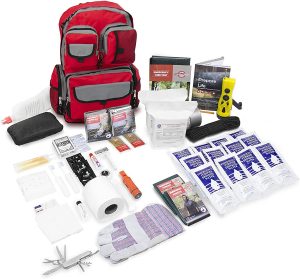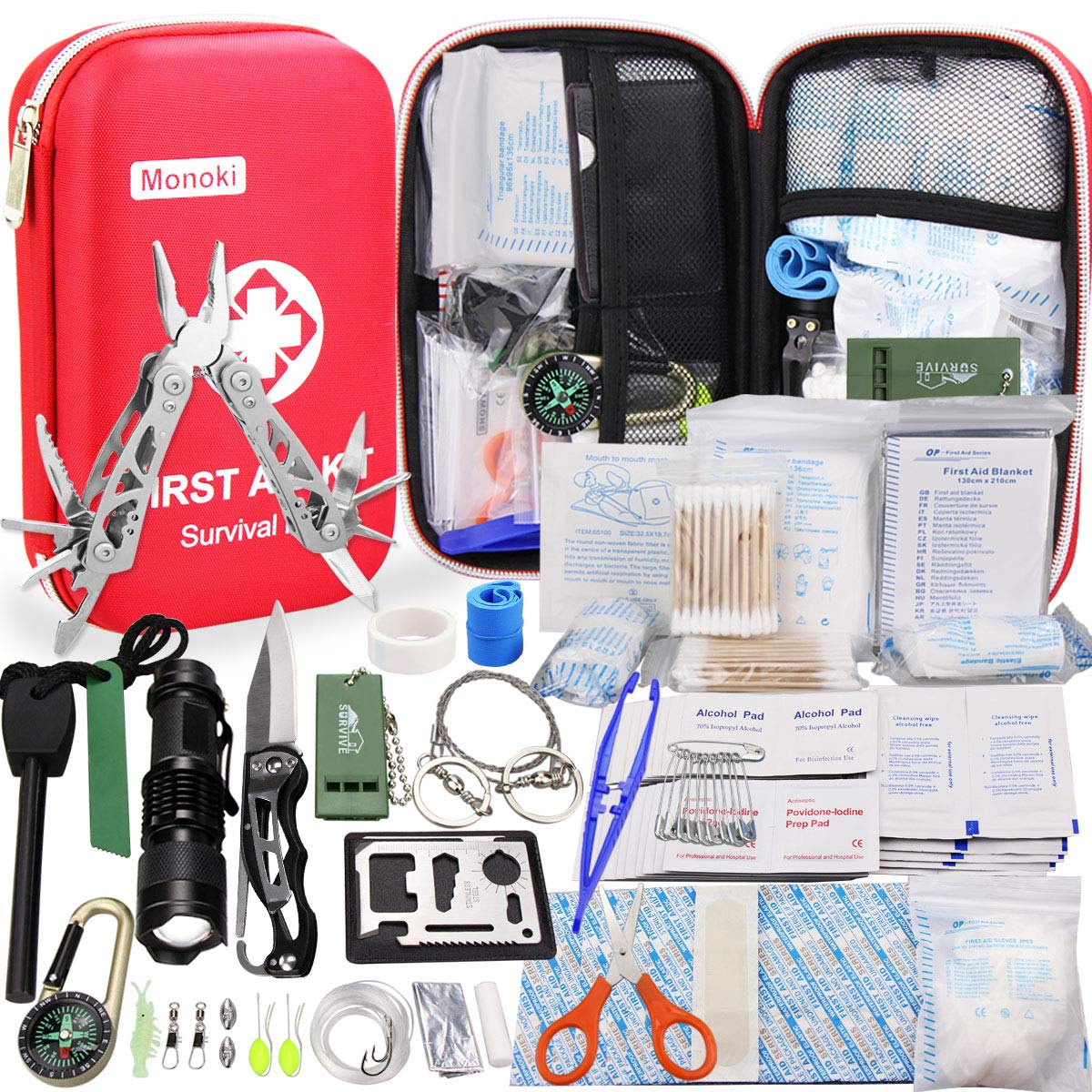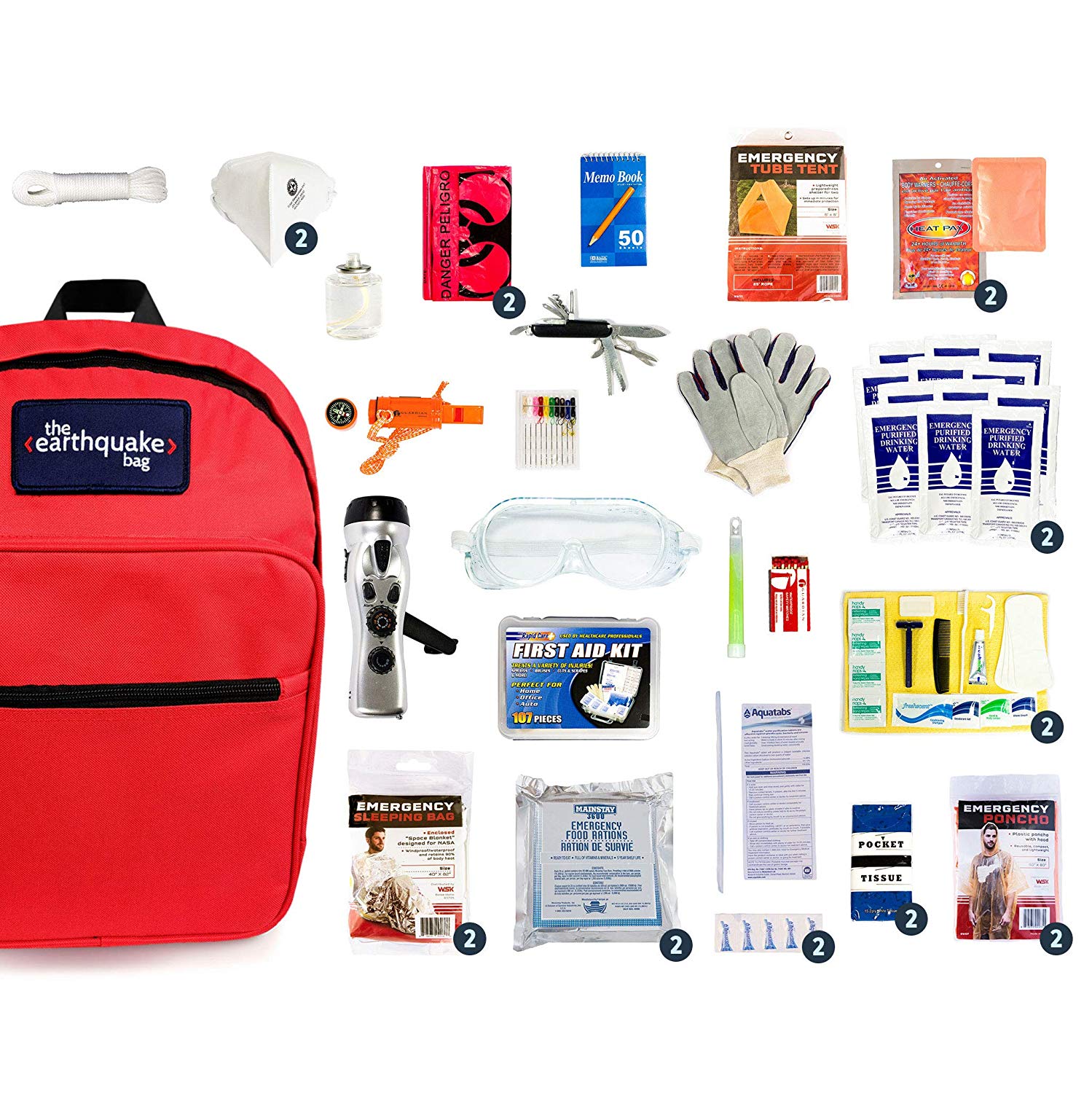When preparing a bug-out bag, few items are as essential as a reliable first aid kit. In emergencies or survival situations, immediate access to medical supplies can mean the difference between a manageable situation and a life-threatening one. But what makes a first aid kit suitable for a bug-out bag?
Why a First Aid Kit for a Bug Out Bag Is Essential

A first aid kit can save lives and prevent minor injuries from escalating into severe problems. During emergencies, medical help may not be immediately available, making your preparedness crucial. A well-organized kit helps address:
- Cuts, scrapes, and wounds
- Burns and blisters
- Allergic reactions
- Infections
- Pain relief
Key Features to Look for in a First Aid Kit For Bug Out Bag
The ideal first aid kit for your bug-out bag should meet specific criteria:
- Compact and Lightweight: Your bug-out bag should remain portable. Choose a kit that balances content and size.
- Durable Case: Look for a water-resistant or waterproof case to protect the supplies in harsh conditions.
- Comprehensive Supplies: It should include basic wound care, medication, and tools to handle a variety of situations.
- Easy Accessibility: Kits with organized compartments allow quick access in emergencies.
- Customization Options: A kit with space for personal medications or additional items is ideal.
What You Need In Your Bug Out Bag First Aid
A bug out bag (BOB) first aid kit is an essential component of any emergency preparedness plan. Whether you’re evacuating due to a natural disaster or preparing for survival scenarios, having a well-stocked first aid kit can make a crucial difference.
We’ll cover the must-have medical supplies and additional items to include in your BOB first aid kit.
1. Basic Wound Care Supplies
- Adhesive bandages (various sizes) – For minor cuts and abrasions.
- Sterile gauze pads – Essential for covering wounds.
- Medical tape – Secures bandages and gauze in place.
- Antiseptic wipes – Cleans wounds to prevent infection.
- Hydrogen peroxide or iodine – Disinfectant for deeper wounds.
- Butterfly bandages or steri-strips – For closing small wounds.
2. Medications and Pain Relief
- Ibuprofen or acetaminophen – Pain relievers and fever reducers.
- Antihistamines – For allergic reactions.
- Aspirin – Useful for potential heart attack symptoms.
- Antidiarrheal medication – Prevents dehydration from prolonged illness.
- Antibiotic ointment – Helps prevent infections.
- Electrolyte tablets – Maintains hydration in emergency situations.
3. Tools and Equipment
- Tweezers – Removes splinters, debris, or ticks.
- Scissors – Cuts bandages and medical tape.
- CPR mask – Protects both rescuer and victim during resuscitation.
- Medical gloves (nitrile or latex-free) – Prevents contamination.
- Thermometer – Monitors body temperature.
- Emergency blanket – Prevents hypothermia and shock.
4. Trauma and Emergency Supplies
- Tourniquet – Stops severe bleeding in life-threatening situations.
- Hemostatic dressing (such as QuikClot) – Assists in clotting wounds.
- Israeli bandage or compression bandage – Helps control heavy bleeding.
- SAM splint – Supports fractures or sprains.
- Burn cream or gel – Treats burns and scalds.
5. Personalized and Additional Items
- Prescription medications – A few days’ supply of necessary prescriptions.
- EpiPen – If you or a family member have severe allergies.
- Eye drops – Helps with irritation and dehydration.
- Dental repair kit – Temporary fix for lost fillings or dental issues.
- First aid manual – Provides instructions for treating injuries and medical emergencies.
A well-prepared bug out bag first aid kit can be the difference between life and death in an emergency. Prioritize essential wound care, medications, trauma supplies, and personal medications tailored to your needs.
Stay prepared, regularly check your kit, and be ready for any situation. Your survival may depend on it.
3 Best First Aid Kit For Bug Out Bag Reviews
1. Urban Survival Bugout Bag 6 Person/Go Bag for Earthquakes Hurricanes and Other Disasters
The Urban Survival Bug-Out Bag is an all-in-one emergency preparedness kit designed to provide essential survival and medical supplies for up to six people. Combining convenience, comprehensive content, and durable packaging, this kit is ideal for families or groups preparing for disasters or emergencies.
Key Features
- Comprehensive Medical Supplies: Includes an array of first aid essentials such as adhesive bandages, sterile gauze, antiseptic wipes, and medical-grade gloves, making it suitable for treating minor injuries during emergencies.
- Multi-Person Design: Designed to support up to six people, the kit is perfect for families or small groups.
- Additional Survival Gear: Comes with emergency blankets, water pouches, and tools like flashlights and a multi-tool for broader disaster preparedness.
- Durable Backpack: The supplies are housed in a sturdy, water-resistant bag, ensuring contents remain safe and accessible in harsh conditions.
- Customizable: Includes extra space to add personal items, medications, or other survival essentials.
2. Monoki First Aid Kit Survival Kit, 241Pcs Upgraded Outdoor Emergency Survival Kit Gear
The First Aid Kit Home 274PCS Emergency Kit is a comprehensive and compact solution for handling injuries and emergencies during outdoor adventures, camping, or disaster situations. Its versatile design and extensive supplies make it a reliable addition to any bug-out bag.
Key Features
- Extensive Supplies: Includes 274 pieces of first aid essentials such as bandages, adhesive tape, scissors, tweezers, antiseptic wipes, gloves, and a variety of medical tools to treat cuts, burns, and sprains.
- Compact and Lightweight: Designed for portability, this kit is easy to carry in a bug-out bag, car, or backpack.
- Durable Storage Case: The sturdy, water-resistant case protects the supplies and keeps them organized with multiple compartments.
- Multi-Environment Use: Ideal for home, car, boat, or outdoor adventures, providing readiness in diverse scenarios.
- User-Friendly Design: Clear labeling and well-organized compartments make it easy to locate items during emergencies.
3. Redfora Complete Earthquake Bag – Emergency kit
The Complete Earthquake Bag is a 3-day emergency kit designed to prepare you for a wide range of disasters, including earthquakes, hurricanes, wildfires, and floods. With its comprehensive selection of survival gear and first aid supplies, this kit is an essential addition to any bug-out bag or emergency preparedness plan.
Key Features
- Comprehensive Emergency Supplies: Includes food, water, tools, and first aid essentials to sustain one person for 72 hours in disaster situations.
- Durable and Portable Bag: The sturdy, water-resistant backpack is easy to carry and built to withstand challenging conditions.
- First Aid Kit: Contains bandages, antiseptic wipes, gloves, and other medical essentials to address injuries during emergencies.
- Disaster-Specific Items: Features tools like a flashlight, whistle, multi-tool, and poncho to ensure readiness for various scenarios.
- Shelf-Stable Food and Water: Comes with pre-packaged rations and water pouches approved for long-term storage.
How To Prepare And How Much Should You Carry In Your First Aid Kit For Bug Out Bag?
 Being prepared for emergencies often means having a well-equipped bug-out bag (BOB). One of the most critical components of your BOB is a first aid kit, as it ensures you’re ready to handle medical emergencies during disasters or unexpected survival situations.
Being prepared for emergencies often means having a well-equipped bug-out bag (BOB). One of the most critical components of your BOB is a first aid kit, as it ensures you’re ready to handle medical emergencies during disasters or unexpected survival situations.
In this guide, we’ll explore how to prepare your first aid kit and determine the right amount of supplies to carry.
How to Prepare Your First Aid Kit for Bug Out Bag
Step 1: Assess Your Needs
Tailor your first aid kit based on:
- Duration of Emergency: Is it for 72 hours or longer?
- Number of People: Are you preparing for yourself or your family?
- Potential Risks: Consider the types of injuries likely in your area (e.g., burns in wildfire zones or cuts in debris-heavy environments).
Step 2: Include Essential Supplies
Here’s a checklist of must-have items:
Basic First Aid Items
- Adhesive bandages in multiple sizes
- Sterile gauze pads and medical tape
- Antiseptic wipes and antibiotic ointments
- Tweezers and scissors
Medications
- Pain relievers (ibuprofen, acetaminophen)
- Allergy medicine (antihistamines)
- Anti-diarrheal tablets
- Any prescription medications
Specialty Tools
- CPR mask
- Splinting material
- Thermometer
- Elastic bandages for sprains
Hygiene Items
- Nitrile gloves
- Hand sanitizer
- Cotton swabs
Step 3: Pack for Portability
Choose a compact, lightweight pouch that keeps everything organized and easily accessible. Opt for waterproof or water-resistant cases to protect your supplies.
Customizing Your Kit
No two bug-out bags are the same, and your first aid kit should reflect your individual needs. For example:
- Families: Add child-safe medications and supplies.
- Allergy-Prone Individuals: Include extra antihistamines and an EpiPen.
- Survivalists: Add wilderness-specific items like snake bite kits or suture tools.
How Much Should You Carry?
Consider Weight and Space
The kit should balance between carrying sufficient supplies and keeping the weight manageable. For a 72-hour bug-out bag, aim for a kit that weighs between 1–2 pounds.
Quantity of Supplies
- Bandages: Carry at least 20 adhesive bandages in varying sizes.
- Gauze Pads: Include 10–15 pieces for wound coverage.
- Medications: A 3–5 day supply of over-the-counter and prescription medications is ideal.
- Sanitizers and Wipes: Include enough to clean wounds for at least 3 days.
Tips for Maintaining Your First Aid Kit
- Regular Updates: Check expiration dates every 6 months and replace expired items.
- Restock After Use: Replenish supplies immediately after they are used.
- Customize as Needed: Adjust the contents based on your health needs or the season.
Final Tips
- Practice Using Supplies: Familiarize yourself with how to use each item, especially tools like tourniquets or CPR masks.
- Secure Placement in Bag: Store the kit in an easily accessible pocket of your bug-out bag.
Preparing a first aid kit for your bug-out bag is not just about having the right supplies but also ensuring you’re equipped to use them effectively. Focus on portability, organization, and meeting your unique needs. With the right balance of essentials and quantity, you’ll be ready to tackle medical emergencies, giving you peace of mind during uncertain times.
Frequently Asked Questions
A bug-out first aid kit should include adhesive bandages, sterile gauze pads, medical tape, antiseptic wipes, antibiotic ointments, pain relievers, allergy medications, anti-diarrheal tablets, tweezers, scissors, nitrile gloves, a CPR mask, and any necessary prescription medications. Tailor it to your needs and emergency risks. A bug-out bag should include pain relievers (ibuprofen or acetaminophen), antihistamines (for allergies), anti-diarrheal medications, electrolyte tablets, cold and flu remedies, antiseptic ointments, and any essential prescription medications. Tailor the selection to your health needs and potential emergencies. Include copies of essential documents in your bug-out bag, such as IDs, passports, insurance policies, medical records, emergency contacts, property deeds, and a list of medications. Store them in a waterproof pouch for protection.What should be in a bug out first aid kit?
What medicine should be in a bug out bag?
What documents do you put in a bug out bag?
Conclusion
A high-quality first aid kit is a cornerstone of any bug-out bag. By choosing the right kit and tailoring it to your needs, you ensure you’re prepared for whatever challenges an emergency throws your way.




